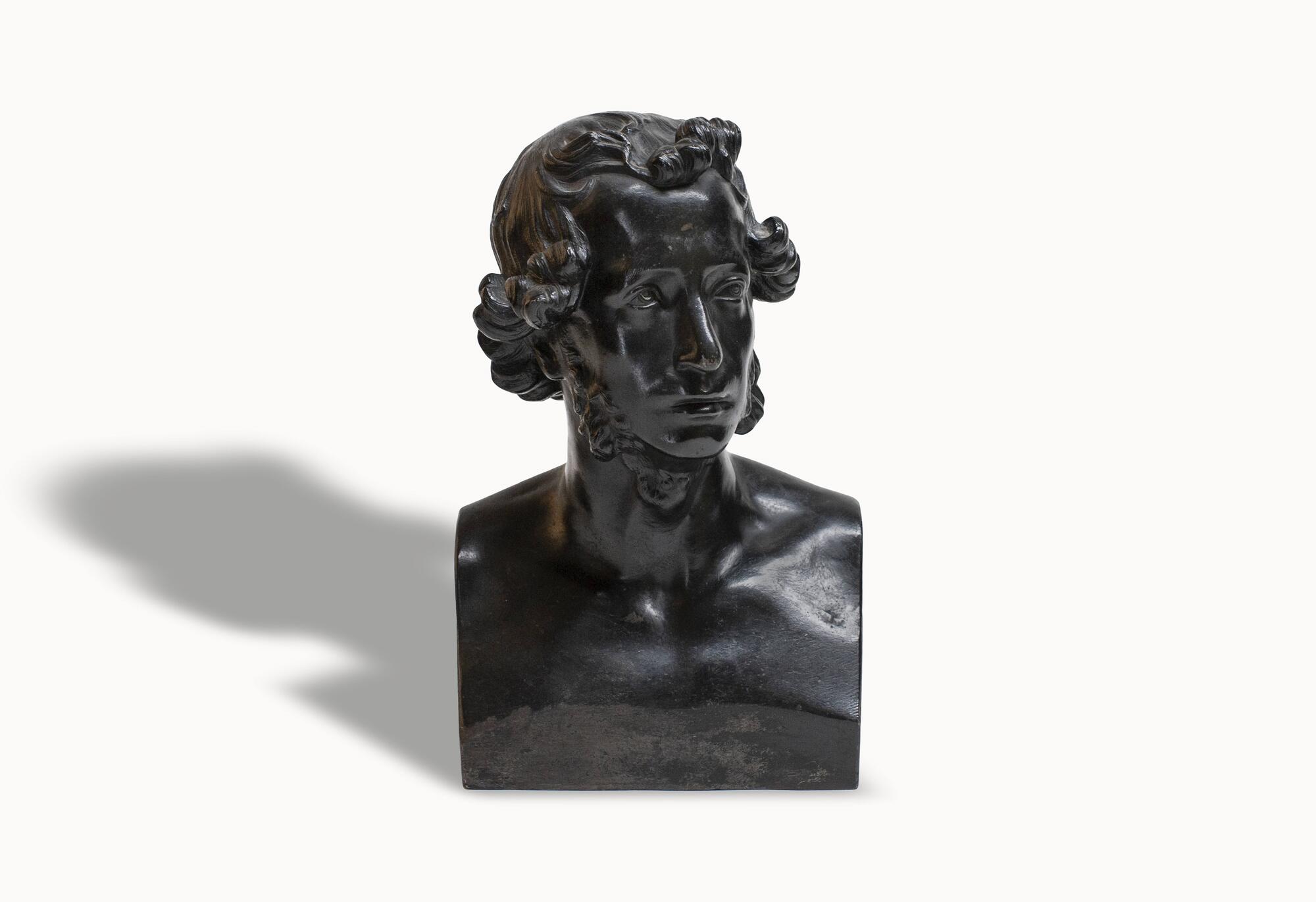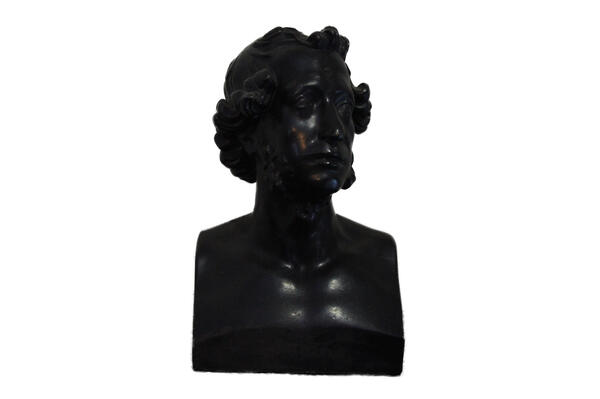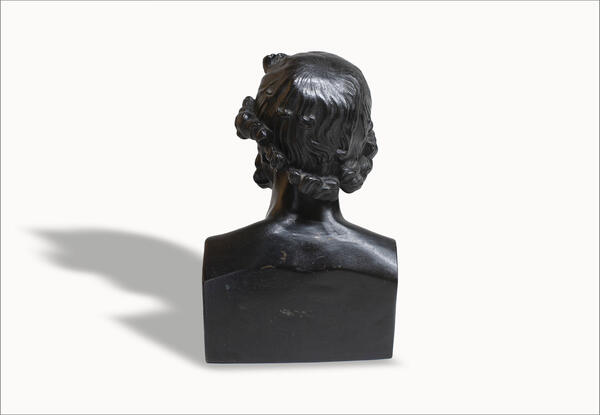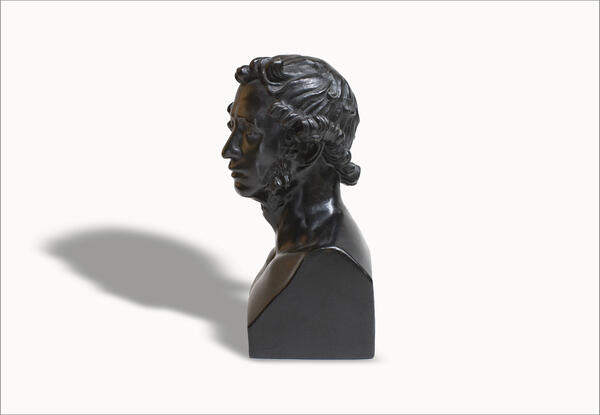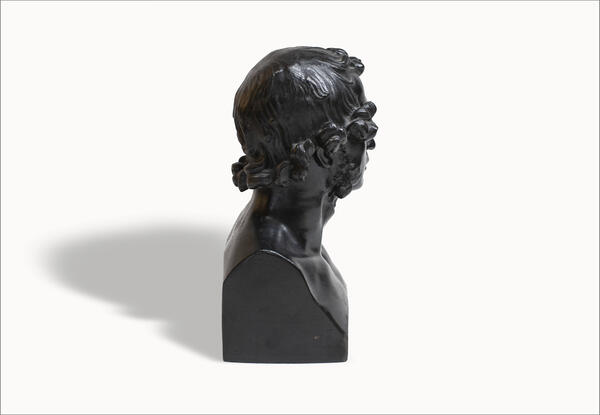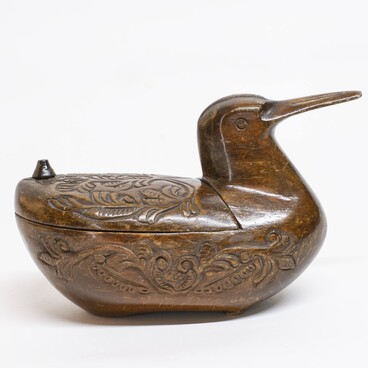The bust of Alexander Sergeyevich Pushkin by the Kasli masters of artistic casting was one of the many gifts presented to Pavel Petrovich Bazhov for his 70th birthday. Cast iron products created at the factory in the town of Kasli, Chelyabinsk Oblast, are famous all over the world. At the turn of the 20th century, the works of decorative and applied arts of the Kasli virtuosos won many prestigious awards at international exhibitions.
This image of the Russian literary genius was made based on the model created in 1837 by the famous sculptor Samuil Ivanovich Galberg, the academician of the Imperial Academy of Arts. It was not by chance that Bazhov received this bust from the staff of the Sverdlovsk Pedagogical Institute.
In Bazhov’s memoirs, letters, autobiographies, essays, articles and speeches, the name of the great poet kept popping up. While he was working in Yekaterinburg, at a Theological and Diocesan schools, lecturing in literature and Russian language, Pavel Petrovich always pointed to the style, skill and subtle sense of language that Pushkin possessed as exemplary. In Bazhov’s home library, both in his youth and in his old age, there was always a collection of the poet’s works.
In 1949, Pushkin’s 150th anniversary was celebrated, and Bazhov was appointed chairman of the organizing committee for the celebration in Sverdlovsk. In the same year, the magazine “Ogonyok” published an article by Pavel Petrovich titled “Through the Entire Life”, in which he told the story of his introduction to the poet’s work.
While still studying in the first grade, Bazhov was fascinated by the simplicity of the narration and the overall, as he saw it, “humorous” tone of Pushkin’s poem “Morning”. At the age of ten, young Pavel finally received from a local librarian a treasured volume of the poet’s works with the jocular stipulation to memorize the book by heart. Bazhov took it seriously and a month later, returning the book to the library, he proudly declared: “I memorized it!”
Pavel Petrovich’s relatives recalled that even at the end of his life he could freely quote large passages from the book he had put to memory as a child. And the writer himself summarized, “If it was not for Pushkin, I would have remained a factory boy who only finished four grades… Pushkin helped me get an education.”
This image of the Russian literary genius was made based on the model created in 1837 by the famous sculptor Samuil Ivanovich Galberg, the academician of the Imperial Academy of Arts. It was not by chance that Bazhov received this bust from the staff of the Sverdlovsk Pedagogical Institute.
In Bazhov’s memoirs, letters, autobiographies, essays, articles and speeches, the name of the great poet kept popping up. While he was working in Yekaterinburg, at a Theological and Diocesan schools, lecturing in literature and Russian language, Pavel Petrovich always pointed to the style, skill and subtle sense of language that Pushkin possessed as exemplary. In Bazhov’s home library, both in his youth and in his old age, there was always a collection of the poet’s works.
In 1949, Pushkin’s 150th anniversary was celebrated, and Bazhov was appointed chairman of the organizing committee for the celebration in Sverdlovsk. In the same year, the magazine “Ogonyok” published an article by Pavel Petrovich titled “Through the Entire Life”, in which he told the story of his introduction to the poet’s work.
While still studying in the first grade, Bazhov was fascinated by the simplicity of the narration and the overall, as he saw it, “humorous” tone of Pushkin’s poem “Morning”. At the age of ten, young Pavel finally received from a local librarian a treasured volume of the poet’s works with the jocular stipulation to memorize the book by heart. Bazhov took it seriously and a month later, returning the book to the library, he proudly declared: “I memorized it!”
Pavel Petrovich’s relatives recalled that even at the end of his life he could freely quote large passages from the book he had put to memory as a child. And the writer himself summarized, “If it was not for Pushkin, I would have remained a factory boy who only finished four grades… Pushkin helped me get an education.”
